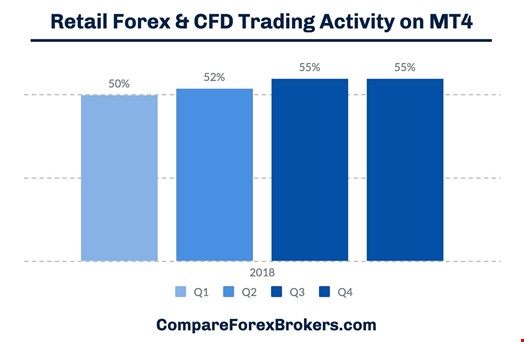Foreign exchange (forex) is the most traded industry compared to any other financial market, estimated to be worth a staggering $2.409qn USD in 2019. The value of the global forex industry continued to increase in 2020, largely due to COVID-induced volatility and uncertainty.
Like any modern industry, as the overall value increases, so does the risk of cybersecurity threats, frauds and scams. Since the outbreak of COVID-19, financial authorities around the world have been warning forex traders about the heightened threat of security breaches. Australia’s regulator (ASIC) found reports that misconduct rose 20% during the first three months of the pandemic. Similarly, New Zealand and US regulators have publicly expressed concerns about the increase in COVID-related forex scams.
As forex traders and brokers rely on software for retail trading services, hackers exploit the industry’s dependence on technology in many ways. More than ever, financial authorities are stressing the need for retail traders to use regulated brokers and reputable trading platforms to reduce the risk of being targeted.
Forex Trading Software and Security
MetaTrader 4 and MetaTrader 5 (developed by MetaQuotes) along with cTrader (Spotware) are the three most popular trading platforms worldwide. Many top brokers offer the software, and since 2005, MetaQuotes have dominated the forex software space with MetaTrader 4 retaining a 55% market share.

MetaQuotes released MetaTrader 4 in 2005 and after 15 years, many consider the platform’s MQL4 programming language outdated, with an increasing number of traders opting for MetaTrader 5 (MQL5) or cTrader (#C) instead. As well as being more user-friendly, both MQL5 and #C code are considered more secure and reliable. While software providers such as MetaQuotes and Spotware routinely update their platforms, the rise in COVID-19 scams has required frantic improvements to the software’s safeguards and features.
How to Avoid Forex Scams
In today’s environment, legitimate brokers recognize that trading platforms and account security are paramount to prospective customers. Software developers and brokers alike are continually enhancing security features to combat the rise in forex scams.
Many brokers will offer measures such as a two-factor authentication login processes to add another layer of account security. Yet, traders are still encouraged to install firewalls as well as anti-virus, anti-malware, anti-spyware and anti-ransomware. Similarly, trading online using public networks or computers dramatically increases the likelihood of becoming the target of someone with malicious intent.
The Most Common Scams and Security Breaches
Although there are plenty of licensed and authorized brokers operating as required by local authorities, illegitimate brokerage services are getting harder and harder to identify. Most commonly, an unauthorized broker will provide fake trading software that is not connected to foreign exchange markets. As well as counterfeit trading platforms, fraudulent brokers may obtain traders’ funds unlawfully by offering extortionately wide spreads.
On top of deceptive trading platforms and spreads, trading robot scams are becoming more common. Trading robots, also known as Expert Advisors (EAs) are a popular approach to automate trading, yet certain algorithms entice traders through manipulated back testing reports that show unrealistic profits.
Unfortunately, it is not only fraudulent brokers and trading platforms that are of increasing concern to financial regulators. Sophisticated hackers can hijack vulnerable trading accounts remotely, gaining access to personal information and trading strategies. As well as personal data breaches, hackers that gain remote access can place trades and transfer account funds undetected.
The array of techniques used by hackers and fraudulent brokers highlights the need to trade with regulated brokers that offer software with safeguards and security measures. As more retail traders look to take advantage of the volatility and chaos caused by COVID-19, hackers and scammers will follow suit. As the pandemic continues, leading trading platforms such as MetaTrader 5 and cTrader will be required to continually reassess the security measures they offer as it is likely more scams and breaches will emerge.

